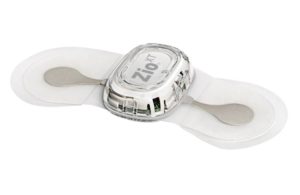 iRhythm Technologies (NSDQ:IRTC) today touted study results that found its Zio device was more effective in detecting Afib than standard care.
iRhythm Technologies (NSDQ:IRTC) today touted study results that found its Zio device was more effective in detecting Afib than standard care.
Published in JAMA Cardiology, the SCREEN-AF study showed that the use of Zio by iRhythm led to a tenfold increase in the detection of Afib when compared to patients receiving standard clinical care. One of every 20 patients in the heart monitoring group was found to have a new diagnosis of Afib and, as a result, 75% of such patients were subsequently prescribed blood thinner medication to prevent against strokes, according to a news release.
The standard of care in Afib detection is a Holter monitor, a wearable that is bulkier than Zio and designed to record heartbeats for a doctor to observe and deduce if there is a heart rhythm problem.
San Francisco-based iRhythm said the study supports the use of Zio as a screening tool for the early detection of Afib, as the system was well-tolerated and effective while enabling some patients to receive anticoagulant therapy.
News of the system’s effectiveness in the study is another boost for the company, which, in December 2020, announced that the Zio XT ambulatory cardiac monitor that uses deep learning algorithms, was positively recommended by the United Kingdom’s National Institute for Health and Care Excellence (NICE) as an option for those with suspected cardiac arrhythmias who would benefit from electrocardiograph (ECG) monitoring for more than 24 hours.
“Approximately one-third of those who have Afib are not aware that they have it, leaving them at a significantly elevated risk of stroke,” iRhythm CEO Mike Coyle said in the release. “The clinical validation that iRhythm has seen through its recent trials – mSToPS and SCREEN-AF – demonstrates that Zio proactively identifies arrhythmias based on risk factors, helping undiagnosed populations remotely monitor their symptoms and effectively seek treatment before more serious problems can occur.”

